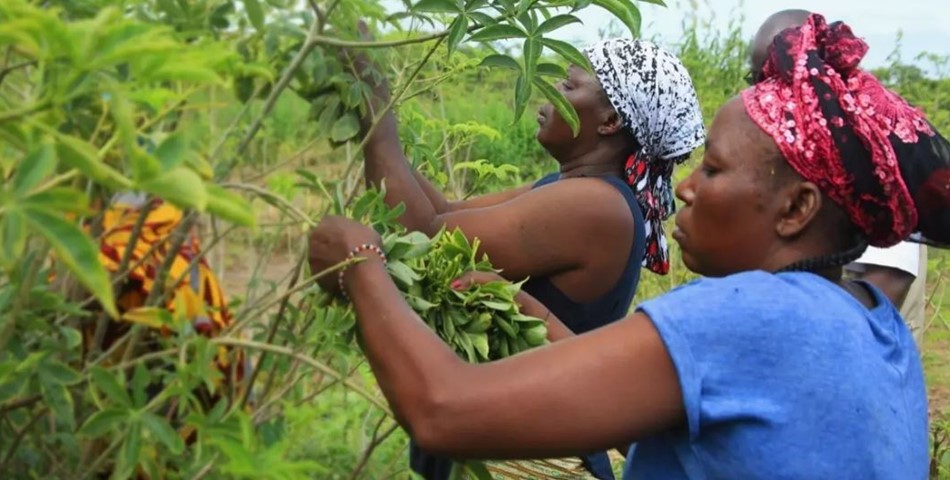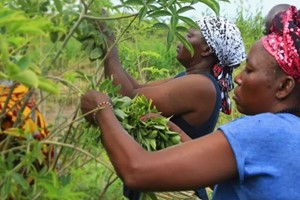Nearly one in three people worldwide (2.37 billion) did not have access to adequate food in 2020. To address the rise in hunger and malnutrition, last month the UN Food Systems Summit concluded a discussion on transforming global food systems.
The Summit pointed towards the climate crisis, rising conflict and the COVID-19 pandemic as key drivers, pushing already fragile food systems to the brink.
The Sahel, where Tree Aid works, particularly bears witness to the realities of these issues. Hunger is never a faraway reality for the vast majority of the population in the region who rely on farming in harsh conditions with limited levels of rainfall and degraded land to feed themselves and their families.
The climate crisis, combined with increasing conflict across many parts of the region, is exacerbating this situation and pushing food systems to near collapse. Last July, Oxfam issued a report identifying those living in West African Sahel as suffering from the fastest growing hunger crisis in the world with a 67% increase in the last 18 months.
Trees improve food security and health
The life changing potential of nurturing native tree species in food systems is too often ignored. Tree foods and agro-forestry systems have largely been sidelined from mainstream debates on solutions for diversifying food systems and increasing access to nutrient-rich food. And yet, trees are central to ensuring a food supply is abundant and environmentally sustainable, as the world faces increased climate change risks
Across the Sahel region, tree foods are a vital and varied source of food for communities. Fruits, nuts, and leaves provided by dryland species are essential to help maintain a nutritious and diversified diet throughout the year.
These are especially vital in dry seasons, when staple grains and pulses become a much higher proportion of the daily diet. For example, the iconic Baobab tree provides iron rich leaves for consumption all year round, while its calcium and vitamin C rich fruit are available in the peak of the dry season.
Trees are also critical to the success of small-holder farming systems in the drylands. Agro-forestry parklands are at the heart of farming systems for much of the Sahel and the use of native trees within these parklands is essential to maintain soil health and structure, growing food sustainably and affordably.
'Super Trees' which feed communities
In our own report which has just launched, Tree Aid explores the direct impact on nutritional outcomes from a 4-year programme promoting tree foods and agroforestry systems across Burkina Faso.
The project, funded by the Swiss Development Agency, helped stimulate the availability and the market for tree products across the country. Working with communities, we founded Nutrition Gardens to grow baobab and moringa leaves, and delivered training on the production and marketing of non-timber forest products.
As evidence of the power that trees can bring in combating malnutrition and hunger, we’ve been able to reduce infant chronic malnutrition by 42%, reduce undernourishment by 8% and increase household incomes by 161% in that time. This income was largely used to increase the availability and quality of food at the household level.
All of Tree Aid’s projects contribute to The Great Green Wall - an African-led initiative to restore ecosystems across the Sahel. Critically, The Great Green Wall has the potential to not only combat the climate crisis and lift people out of poverty, but eradicate the hunger crisis across the region, by restoring forests and agro-forestry landscapes.
Now, with COP26 in Glasgow fast-approaching, policy makers across the world must recognize the vital role of trees in sustainable agriculture and high-yield farming systems. Trees need to be brought into the conversation, whether on food systems, agriculture, nutrition or climate protection. We must continue to talk trees, at COP26 and beyond.
Tom Skirrow












